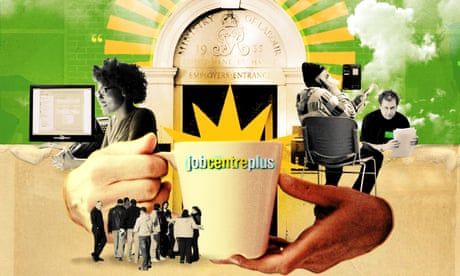
A radical rebrand will get people off benefits and into training and work. The system must be robust, but also humane
Jobcentres are the “least well-used” and “least well-loved” of all public services, a failure at the heart of the economy that helps account for the biggest contraction in the workforce since the 1980s. So said the employment minister, Alison McGovern, as she launched a report from the Institute for Employment Studies, a commission she worked with closely. It makes a fierce critique of the system as it stands. She packs a punch, rejecting a system in which all the blame falls on the individual and that ignores social obstacles: the millions of people waiting for NHS treatment, the absence of childcare, the lack of buses to work, age discrimination, and punitive jobcentre work coaches instructed to push people into “any old job”, however dead-end and insecure.
Promising a radical “culture change”, which will re-badge the government’s approach as a jobs and careers service, McGovern will throw the doors open for all. By only taking benefit claimants, jobcentres have had a stigma that deters employers as well as jobseekers. Work coaches will become advisers, trained to offer universal careers guidance. There may even be hot drinks, making this a service based more on tea and sympathy than fear and sanctions (stopping benefits). Yes, there will always be “conditionality”, but watch the balance shift rapidly towards help. Here’s how bad it is: half a million people who are in employment currently have to attend a jobcentre every week to prove they spent 35 hours either working or seeking more hours or better-paid jobs; their partners are called in to attest to their own job-seeking. Abandon that compulsion on the already employed and 2,500 advisers will be freed up to offer deeper, better consultations – finding options, easing obstacles, offering training – with less time spent policing benefits.
Polly Toynbee is a Guardian columnist
Continue reading...